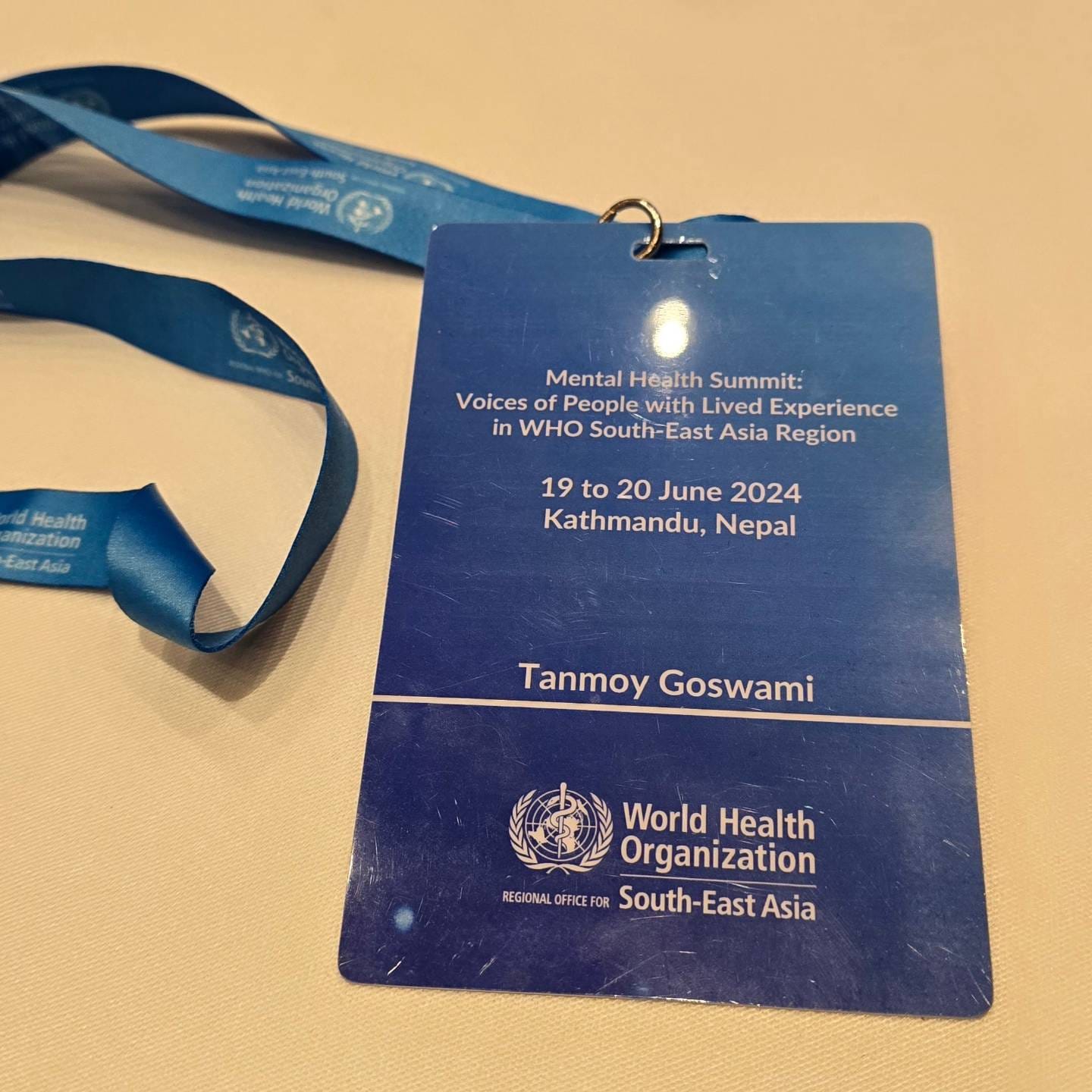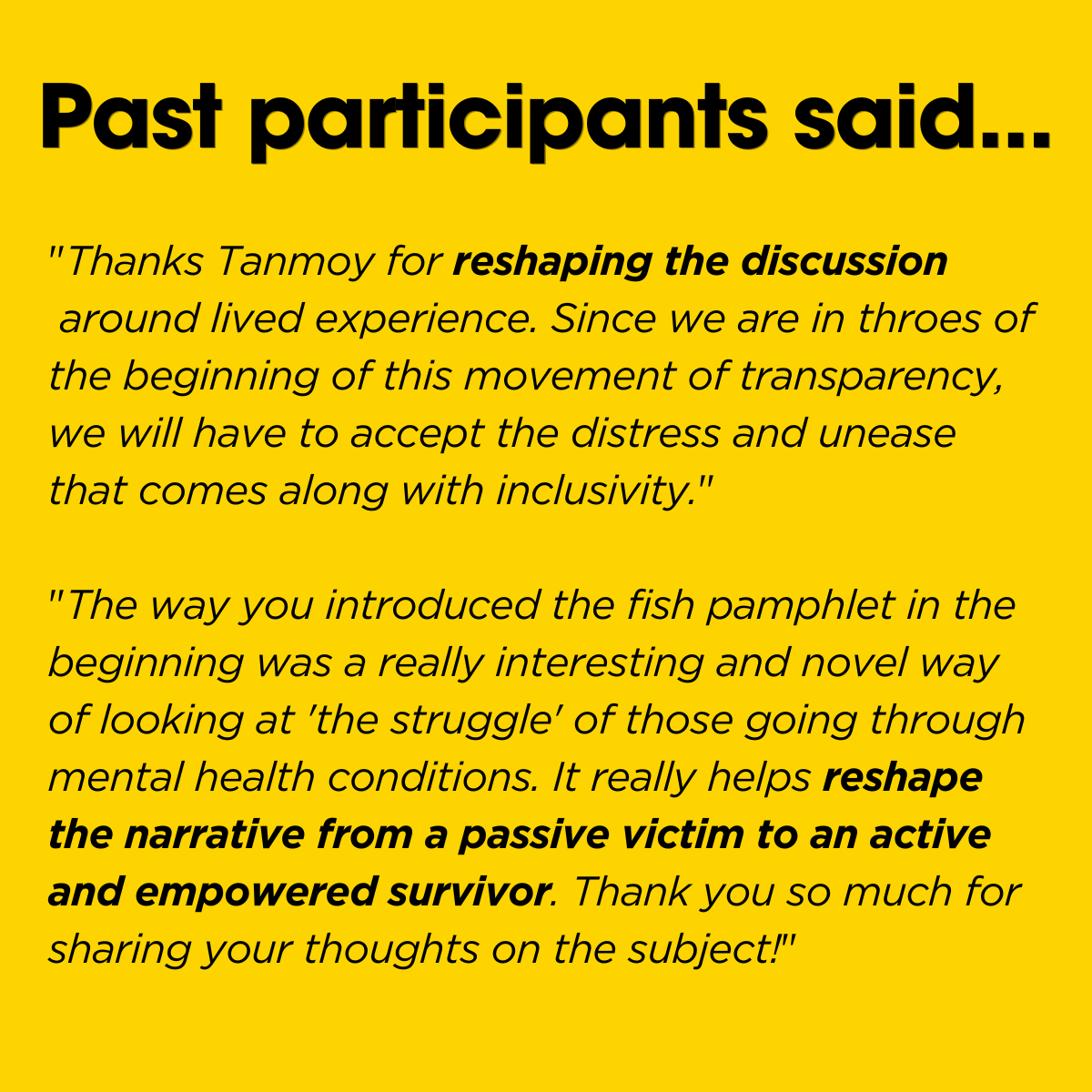
🧠Learn with me: How lived experience went viral
A closed-group interactive session on the 'trendiest' term in mental health.

I've delivered this session on lived experience for the past two years as part of a closed-group mental health leadership programme, and now I am opening it up to you.
Past attendees have included persons with lived experience, caregivers, therapists, psychiatrists, social workers, researchers, policymakers and allied professionals, students, and folks curious about the mental health movement from diverse parts of the world. Here's why they liked the experience:

Big questions we will explore together
- What is lived experience, really, and what is it not?
- How did a term that originated as part of the feminist movement become embroiled in one of our time's most polarising culture wars?
- Are individuals weaponising lived experience to undermine 'objective' capital-T Truth, by claiming that their own subjective experiences are the highest form of truth?
- Or is lived experience a legitimate form of expertise that's finally asserting itself against the privileged elite who have long monopolised the idea of expertise?
- Who can lay claim to lived experience and who is kept out of this community? Does lived experience belong only to people with a diagnosis?
- How did lived experience expertise become a career currency you can put on your CV?
- How can people in power incorporate lived experience in their policies and programmes to create better, more inclusive systems and structures?
Session structure
In this two-hour interactive session open to a limited audience, I will:
- Walk you through the modern history of lived experience – its origins and evolution
- Address myths and confusions about the idea of lived experience
- Highlight best practices on integrating lived experience in various domains
- Direct you towards a rich list of further readings and reference materials
- Hold space for intra-group discussion.
After this session, you will be able to...
- Get a nuanced understanding of lived experience that goes beyond the polarising noise on the topic
- Better appreciate, evaluate, and contextualise your own lived experience
- Feel equipped to explore the history and politics of lived experience in depth
- Develop your own frameworks for integrating lived experience expertise in your domain
What you should not expect + housekeeping
- This is a space for reflection and discussion and NOT an academic lecture. The aim is to help us engage with perspective-expanding questions rather than rigid and prescriptive answers.
- I am NOT a mental health professional and WILL NOT offer clinical advice or therapist recommendations. To ensure the safety of all participants, please don't use the message board during the session to ask for or offer mental health advice.
- This session is meant for a conceptual discussion on the idea of lived experience and is NOT meant for sharing personal mental health stories. Please do not use it as such and seek out peer support groups if that's what you need.
- We will follow the Chatham House rule. This means that you are free to use the information received, but you MAY NOT disclose the identity or affiliation of any speaker or participant in the session.
See the detailed code of conduct here: https://www.sanitybytanmoy.com/school-of-sanity/
Sign up now. See you there.
Explore the lived experience section on Sanity




